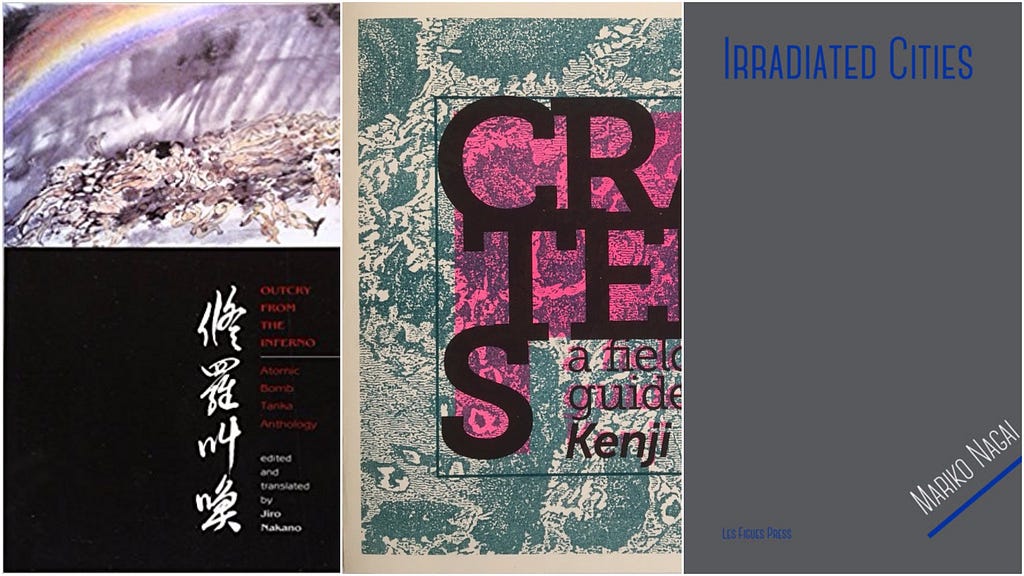
Given the recent fire and fury of US’s escalating tensions with North Korea over their nuclear arms program, the threat of nuclear apocalypse seems as nigh as ever. All the more important, then, is our observation of International Day Against Nuclear Tests, on August 29. Created by the UN in 2010, this day calls for education and awareness “about the effects of nuclear weapon test explosions or any other nuclear explosions and the need for their cessation as one of the means of achieving the goal of a nuclear-weapon-free world.”
Perhaps unsurprisingly, poets have played an important vocal role in the fight against nuclear tests. For instance, poet and novelist Lenore Marshall — namesake of the prestigious Lenore Marshall Prize — played an instrumental role in the founding of the National Committee for a Sane Nuclear Policy, a citizens’ organization that lobbied successfully for the passage of the 1963 partial nuclear test ban treaty.
Also notable is a lineage of Japanese poets who have invoked traumatic cultural memory of the Hiroshima and Nagasaki bombings as harrowing reminders of what should never have happened and cannot happen again. Jiro Nakano compiled and edited a searing anthology of over 100 tanka poems by survivors of these bombings, Outcry from the Inferno (Bamboo Ridge, 1995), with parallel English translations.
More recently, Kenji K. Liu’s Craters — A Field Guide (Good Morning Menagerie, 2017) recalls the Nagasaki bombing and its aftermath, still felt today. Liu’s portrait portends, in the words of our reviewer M.H., “a striking, visceral attempt at recording how institutional repression leaves its invisible imprints on one’s body, only for them to be revealed in various forms of bodily resistance to colonial violence.” Liu leaves the reader to pick at the scabs:
What animal and where. Has an origin
story. A flag, a postage stamp.
The history of teeth.
What country doesn’t have teeth?
This is the animal age. We scab each other with
knowledge. No nature, only information and formations.
A bomb, an animal. Wings in inappropriate places,
lungs like islands. Luminescent iris of the sea.
I’d also like to highlight another recent book — Mariko Nagai’s haunting Irradiated Cities (Les Figues, 2017). Writing in the specter of the Hiroshima and Nagasaki bombings and the nuclear meltdown at Fukushima, Nagai collages lyric fragments and eerie black & white photographs to evoke the unspeakable devastation and its fallout. Catastrophe lurks even in ghostly parentheses: “(it always seems to be clear on catastrophic days).” [I am reminded, too, of the limp brackets in Virginia Woolf’s To the Lighthouse, tasked with bearing the facts of death as time continues to press on, nonchalantly.]
Poets have been and continue to be vocal critics of nuclear war. It is unfortunate that the sentiment of Allen Ginsberg’s refrain from “America” continues to resonate with our present political climate: “America when will we end the human war? / Go fuck yourself with your atom bomb / I don’t feel good don’t bother me.” But our task — today and everyday — is to bear the memory of nuclear devastation and fight for a world without nuclear weapons.
Poets Against Nuclear Tests was originally published in Anomaly on Medium, where people are continuing the conversation by highlighting and responding to this story.
